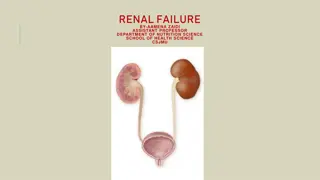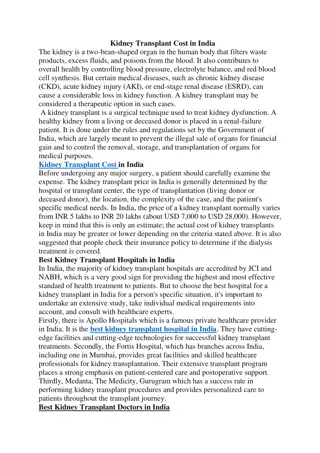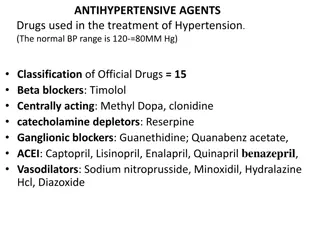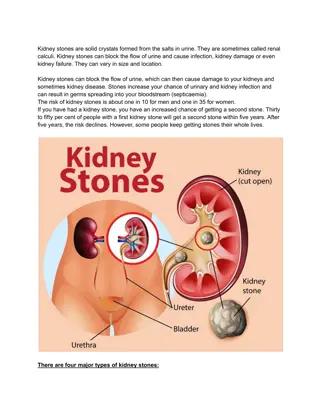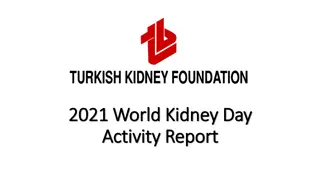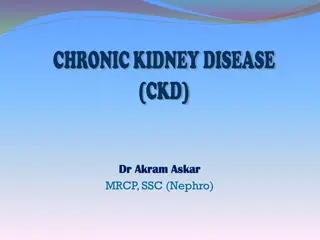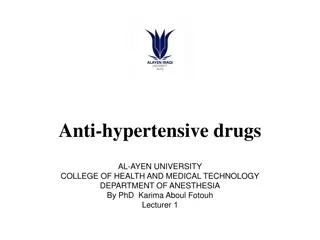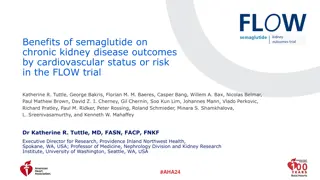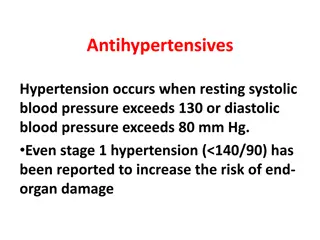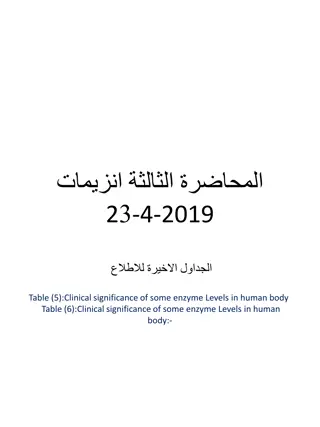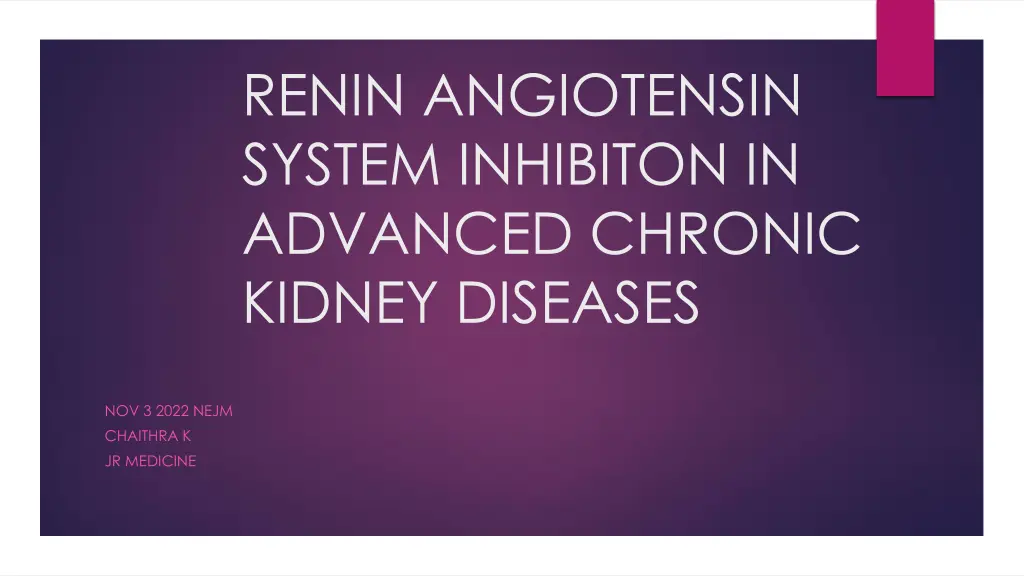
Inhibition of Renin-Angiotensin System in Chronic Kidney Disease Study
A study on the effects of discontinuing Renin-Angiotensin System inhibitors in patients with advanced chronic kidney disease showed promising results in stabilizing eGFR levels. The study conducted a multicenter, randomized trial involving patients with progressive CKD and assessed the impact of stopping RAS inhibitors on kidney function. The trial design, patient selection criteria, and results are detailed in the study.
Download Presentation

Please find below an Image/Link to download the presentation.
The content on the website is provided AS IS for your information and personal use only. It may not be sold, licensed, or shared on other websites without obtaining consent from the author. If you encounter any issues during the download, it is possible that the publisher has removed the file from their server.
You are allowed to download the files provided on this website for personal or commercial use, subject to the condition that they are used lawfully. All files are the property of their respective owners.
The content on the website is provided AS IS for your information and personal use only. It may not be sold, licensed, or shared on other websites without obtaining consent from the author.
E N D
Presentation Transcript
RENIN ANGIOTENSIN SYSTEM INHIBITON IN ADVANCED CHRONIC KIDNEY DISEASES NOV 3 2022 NEJM CHAITHRA K JR MEDICINE
In patients with mild or moderate c/c kidney disease use of ACE inhibitors and ARBs reduces BP, slows decline in eGFR , reduces proteinuria delays progression to CKD. Progression to advanced CKD is associated with increased risk of RRT, cardiovascular events and death Current guidelines donot provide specific advice on whether to continue or stop ACE inhibitors and ARBs
This study Conducted the multicenter, randomized, open-label STOP-ACEi trial involving patients with advanced and progressive chronic kidney disease to assess whether the discontinution of RAS inhibitors would increase or stabilize the eGFR.
METHODS Trial design Patient underwent screening at 39 centres in UK Trial was funded by national Institute for Health research and medical research council
METHODS- patient selection Adults >18 yrs with stage 4 or 5 with CKD(eGFR-<30ml/1.73 m2 of body surface area)-if they are not receiving dialysis and had not undergone kidney transplantation All eligible patients were required to have had a decreaseof > 2ml/minute /1.73m2/yr in the eGFR during the previous 2 yrs and to have been receiving treatment with an ACE inhibitor or ARB or both for more than 6 months GFR measured using MDRD GFR calculator Patients were randomly assigned 1:1 ratio either to continue /discontinue RAS inhibitors
In the 2 groups, target BP was 140/85mmHg In the group that discontinued RAS inhibitors, any other antihypertensive agents was given reinitiation was only last resort In the continuation group clinician chose the agent and dose of RAS inhibitor, could combine it with any other antihypertensives Follow up of all patients every 3 months after randomization for 3 yrs Data censoring was performed at 3 years
Results Patients From 2014 to 2018 a total of 17290 patients screened in 39 centres Of these 411 at the 37 Centres underwent randomisation to a trial group with 206 in discontinuationgroup and 205 in continuation group Median age was 63 yrs and eGFR was 18 ml/Minute/1.73m2
RESULTS PRIMARY OUTCOME eGFR at 3 yrs was measured as primay outcome at 3 yrs among 411 patients eGFR of discontinuation group was 12.6+/-0.7 Continuation group was 13.3+/-0.6 P value =0.42 95% confidence interval ,-2.5 to1
SECONDARY OUTCOME It included the development of ESKD / intitiation of RRT ESKD OR initiation of RRT occurred in 128 pts(62%) in discontinuation and in 115 pts(56%)in continuation group Adverse events were similar in the discontinuation and continuation group with respect to cardiovascular events(108 vs 88) and deaths(20 vs22)
CONCLUSIONS Among patients with advanced and progressive chronic kidney disease, the discontinuation of RAS inhibitors was not associated with a significant between-group difference in the long-term rate of decrease in the eGFR. During the first year of follow-up, higher levels of systolic and diastolic blood pressures were observed in the discontinuation group, but there was little difference in these measures thereafter,
The numbers of hospitalizations for any reason were similar in the discontinuationgroup group and the continuation group (414 and 413, respectively), During the first year after randomization, the discontinuation group had a transient increase in protein level, but little between-group difference was observed thereafter The mean hemoglobin level was similar in the two groups at 3 years
No material differences in quality of life or exercise capacity were observed between the two groups. In this trial, the discontinuation of RAS in- hibitors in patients with advanced and progres- sive chronic kidney disease did not lead to a clinically relevant change in the eGFR or a be- tween-group difference in the long-term rate of decline in the eGFR

